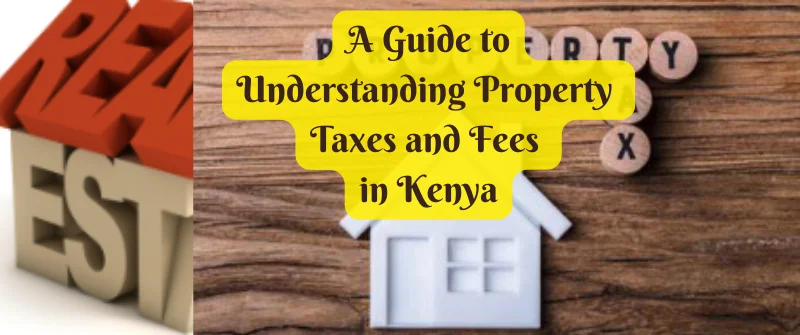Investing in **real estate in Kenya** offers immense potential, but understanding the associated tax obligations is crucial for both compliance and maximizing returns. Property taxation in Kenya involves various levies, fees, and duties imposed at different stages of property ownership and transactions. Navigating this intricate landscape can be daunting, but with proper knowledge, you can ensure financial prudence and avoid penalties. At **Vineyard Properties**, we believe in empowering our clients with clear, actionable information regarding all aspects of **real estate in Kenya**, including its tax implications.
1. Types of Property Taxes and Levies in Kenya
Several types of taxes and levies apply to **real estate in Kenya**:
a. Land Rates:
These are annual taxes levied by county governments on freehold and leasehold properties within their jurisdiction. The amount is usually based on the unimproved site value of the land or a percentage of the property's value. The purpose of land rates is to fund public services provided by the county, such as infrastructure, sanitation, and security. Failure to pay land rates can lead to significant penalties, interest accrual, and even the risk of your property being auctioned by the county government.
b. Stamp Duty:
This is a tax charged on instruments (documents) that transfer ownership of property. When buying land or property in Kenya, you are required to pay stamp duty as a percentage of the property's market value. The rate varies depending on whether the property is within a municipality (usually higher) or outside. It's a one-time payment made during the transfer of ownership. Ensuring timely payment is critical for legalizing your property transfer.
c. Capital Gains Tax (CGT):
CGT is a tax levied on the profit made from the sale of property (land or buildings). It is calculated on the net gain, which is the difference between the transfer value (selling price) and the adjusted cost (purchase price plus allowable expenses like legal fees, stamp duty, improvements, etc.). The current CGT rate in Kenya is 15%. This tax is payable within 20 days of transferring ownership. Exemptions may apply, for instance, for residential homes occupied for a certain period. Understanding CGT is vital for predicting your net profit on **real estate in Kenya** sales.
d. Rental Income Tax:
If you earn income from renting out property in Kenya, this income is subject to tax. For individuals, rental income is typically taxed at a flat rate of 10% on gross rent for income up to KES 288,000 per month (or KES 10,000 to KES 288,000 per month for residential property). For higher income or corporate landlords, standard income tax rates apply, with allowable expenses deducted. Compliance with rental income tax is crucial to avoid penalties from the Kenya Revenue Authority (KRA). **Vineyard Properties** can assist with accurate rental income declarations and management.
e. Value Added Tax (VAT):
While usually not directly applicable to the sale of residential properties, VAT may apply to the sale of commercial properties and certain services related to real estate, such as brokerage fees or construction services (if the developer is VAT registered). It's important to clarify VAT implications in any commercial property transaction.
2. Importance of Compliance and Financial Planning
Non-compliance with property tax obligations in Kenya can lead to severe penalties, including hefty fines, interest on unpaid taxes, and legal action. Proper financial planning involves:
- **Budgeting for Taxes:** Factor in all applicable taxes when calculating your total investment cost and potential returns.
- **Timely Payments:** Ensure all tax payments are made within the stipulated deadlines to avoid penalties.
- **Accurate Record Keeping:** Maintain meticulous records of all property-related income, expenses, and transaction documents.
- **Seeking Professional Advice:** Engage with tax consultants or reputable real estate firms that understand the local tax laws.
3. Recent Reforms and Future Outlook
The Kenyan government is continuously reforming tax laws to enhance revenue collection and streamline processes. The implementation of digital platforms for land registration and tax payments aims to increase transparency and efficiency. Staying updated on these changes is essential for any property owner or investor in **real estate in Kenya**.
Conclusion: Your Guide to Tax-Smart Real Estate Investments
Understanding property taxation is a critical component of successful **real estate in Kenya** investment. From land rates and stamp duty to capital gains tax and rental income tax, each levy has its own implications that must be carefully managed. Don't let tax complexities deter you from making informed investment decisions. At **Vineyard Properties**, we provide not only lucrative property opportunities but also expert guidance on navigating the legal and tax landscape. Our team can help you understand your obligations, plan your finances effectively, and ensure full compliance, allowing you to focus on maximizing the returns from your **real estate in Kenya** portfolio. Contact us today for tailored advice and secure your investment's future.




